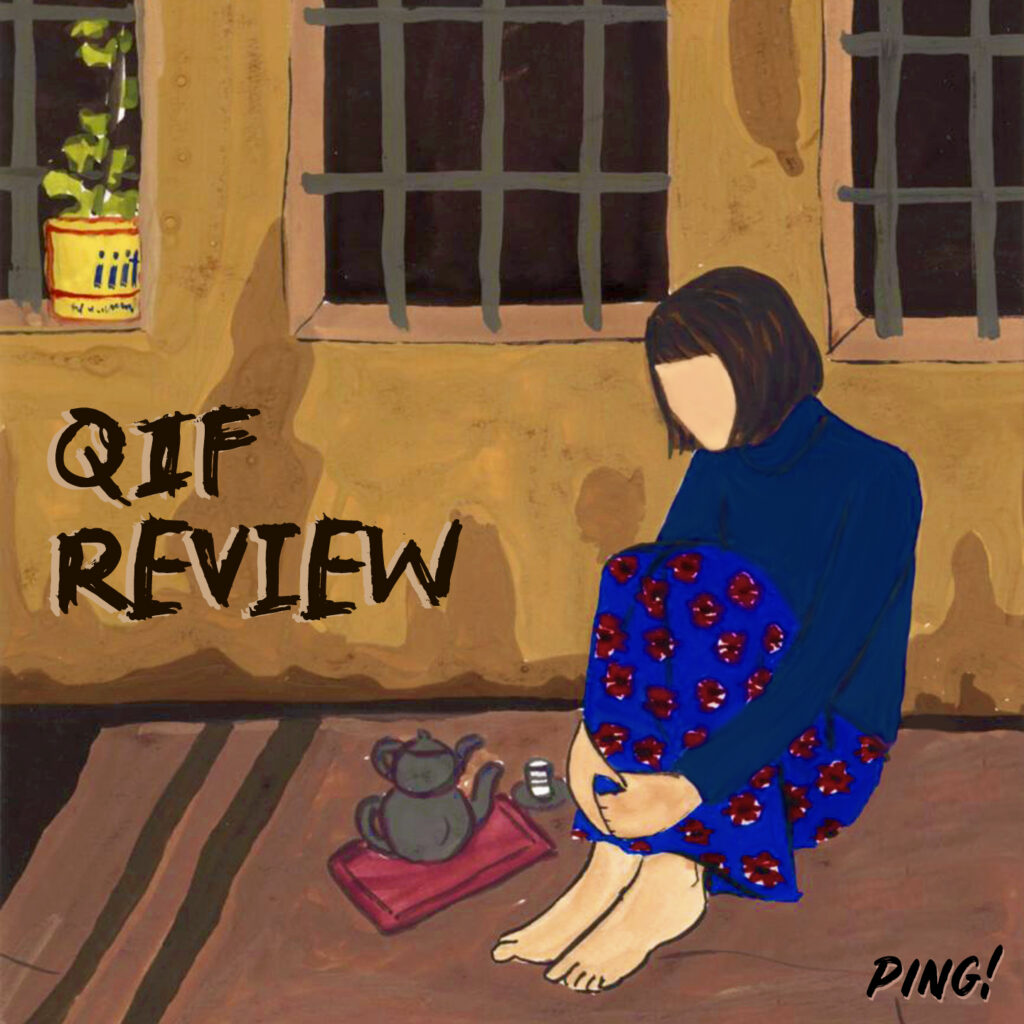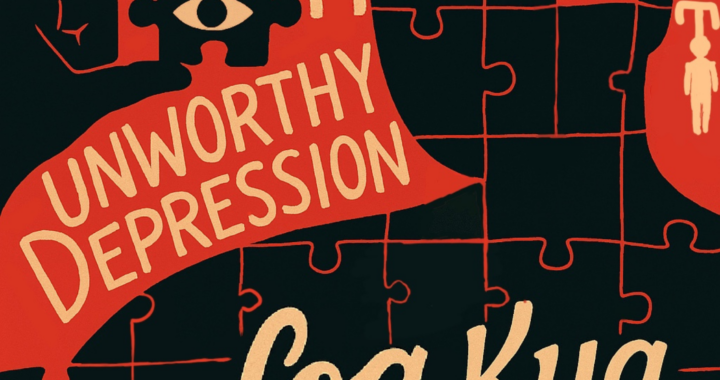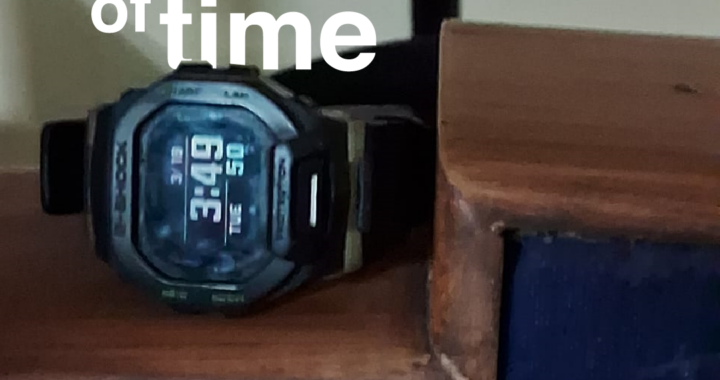QIF Review: A peek into IIIT’s Quarantine Facilities

We’ve been living in a totally different, sometimes virtual, world since this virus hit us 2 years ago, and ‘quarantine’ has been one of the most common words in our vocabulary since then. As we know, college had shifted to an online mode for a lot of these COVID-affected months. But now, after a couple of years, we’ve finally been welcomed back to campus.
A few hostel wings were converted to QIFs (Quarantine & Isolation Facilities). Here’s a look into each one of them, with information about their logistics, facilities & rule-making policies, which were collected from interviews with people who’ve stayed there.
Duration of Quarantine
Everyone who came to campus had a 5 day quarantine. Those who tested +ve for COVID after returning from outside campus had to quarantine for 10 days.
However, the government’s recommendation for quarantine/isolation was 7 days, so an email was sent to the college authorities, asking to relax this duration from 10 to 7 days (it was then relaxed).
Old Parijaat
Logistics
The students in quarantine were allowed to order things like groceries, from Swiggy Instamart, etc, but cooked food like Swiggy deliveries couldn’t be ordered. In fact, our informant felt that there was no bio-bubble, and a few students weren’t even following COVID norms. For example, a few people collected deliveries/food from the guard while not even wearing a mask, while even these guards were all following covid protocols.
However, a lot of praise was given to the ground-level staff. They tried to prevent the contact of a COVID +ve and -ve person as much as they could, and did a great job here.
Facilities
Parijaat had an attached washroom with each room, but the rooms themselves were extremely dull with inadequate sunlight, which obviously affected mental health. Nothing considerable seems to have been done by the authorities to remedy this.
Rule-Making
The main concern was that the CTF was disconnected from the ground-level situation, which led to what was called “random rule-making”. CTF has 3 student volunteers, out of which one wasn’t even on campus.
PhD Quarters
Logistics & Facilities
It was called “a 1-week vacation” to be quarantined in the PhD hostel rooms, as the rooms were great, with the only initial concern being the lack of tables (which was addressed fast enough). The guards in the isolation block were helpful and available on call as well. The ground-level staff are appreciated for their efforts.
Everyone in quarantine was provided with an oximeter, thermometer and a standard set of initial medicines. Drinking water was dispensed via water cans with pumps. They were also given a kettle for hot water.
However, those who quarantined here had to share their room with another person.
Also, there are no attached bathrooms, unlike Old Parijaat.
Faculty Quarters
Logistics
The quarantine on entry to campus was usually 5 days, but the rules were inconsistent for international arrivals. International arrivals were supposed to be quarantined for 7 days, even though some of these students had taken domestic flights (they were international only when they filled the original form, which was a month before they landed).
As the authorities didn’t know that they were international initially, they allotted them to the regular Faculty Quarters QIF. They were moved to the single-rooms in Parijaat a day later.
The duration of quarantine, apart from the above, was pretty consistent, but the enforcement was lacking, although staff followed all protocols. A few students did move to different rooms without others knowing, like in GH. In fact, these students were caught in the act, but my informant is not sure what the consequences were.
Students were not allowed to go out of the room. Deliveries could be given to the guard on the ground floor, and students could then collect them from him.
In contrast, this QIF has now been converted to a quarantine facility for COVID +ve people, where they share rooms with other people (like the PhD hostel).
Facilities
There was a major flaw in the water facility with regards to COVID protocols: a lot of people had to touch the tap and use a common mug. Furthermore, the water supply consisted of a simple pumping device on top of a plastic can, and this setup rarely worked.
However, the rooms were big, really clean and had a lot of fresh air (contrasting with Parijaat).
A major issue was the lack of furniture. There were no bed frames, chairs or tables in these rooms. However, one plastic chair per apartment was provided later (although these were double-occupancy rooms).
Also, initially there was no Wi-Fi / LAN in the hostel (although LAN connection was provided after repeated requests by the students). Internet access seemed to be a major problem for people on the ground floor, where mobile data was poor.
At best, each apartment would get only one table. In the washrooms, there was no central heating although they were provided with curling irons to heat water. Every apartment had a kitchen-like area (a sink) and a long granite table. Food was provided by the Kadamb mess.
CTF/Rule-Making
CTF were quick to respond to the requests of people quarantined in FSQ, and to redirect them to the right people.
The college authorities were prepared with a list of students to be quarantined, and rooms weren’t allotted on a first-come first-serve basis. Furthermore, the stationary seller was allowed to visit the hostel and sell LAN cables, pillows, etc.
Bakul QIF (Phase 1)
It was a 5-day isolation for all those who reached campus on their slot dates before 2pm, but extended by a day for the rest.
Logistics
Movement here was decently restricted; they were allowed to go to the 2nd floor for getting food. Also, similar delivery rules applied here too: items were to be handed to the guard, and students would then collect them from him.
Most people in this QIF seemed to be UG3 ECE/ECD students and the number of students were much lesser compared to future slots.
Facilities
They were all allotted single rooms (i.e. no roommate) and had decent amenities, including the LAN. Rooms were properly cleaned prior to arrival as they’d gone unused for a couple of years.
For a first, each student was given a set of 3 lock/keys for their respective rooms, a personal shower room & a personal toilet. They were all asked to lock them when not in use, to prevent public contact.
Each floor had just 8 students quarantining, which is quite low, but also the reason why personal washrooms were manageable.
Testing & CTF
They were tested on their 3rd day of quarantine, despite obviously staying in the QIF for 5 days. For example, the person I interviewed came to campus on the evening of 15th January and was tested on the 18th.
As the incubation period for COVID is mostly 5 days, testing might be ineffective if done before 5 days (As per WHO’s 73rd situation report on COVID-191)
There were no glaring mistakes by the authorities, but this QIF got much worse in implementation later. The enforcement was lacking, and my informant could have a good quarantine because he chose to stay indoors at most times. There were cases of students going into each other’s rooms yet again.
The student CTF members responded to urgent mails, DMs, etc.
But college seems to have underestimated the effect of calling just a few people initially, as in later phases it was impossible to have separate washrooms, etc because of the many more people being called in further slots/phases.
Bakul QIF (Phase 2)
Logistics
This phase, too, consisted of a 5 day quarantine on entry to campus. The rooms that were allotted to people were the same ones that they had previously occupied before COVID times.
After quarantine was over, some of them were asked to continue staying in their respective rooms.
A few people came on 22nd and others on 23rd, so their quarantine ended on 26th and 27th respectively. So what happened was that on 27th (which was the 5th day of quarantine for half of Bakul), the rest who had finished quarantine were allowed to leave the hostel freely.
It is notable that, although we have no evidence this happened, anyone could get out of the hostel anytime, since there was no system of identifying students whose quarantine period was over.
The hostel was mixed up and room allocation was inconsistent i.e. there were no such particular floors assigned to QIF and the rest.
Facilities
Rooms were unclean due to ineffective cleaning, in contrast with phase 1.
Food was provided via a buffet in a separate floor, and not in food packets. However, it often used to come around 30 min late, and yet get over before endtime. Deliveries of groceries were allowed. Delivery of food packets was not allowed.
A noticeable flaw was that the guard was only on the ground floor, so people on other floors could just go into each others’ rooms if nobody found out.
CTF
The student CTF were replying to queries/concerns during my informant’s first quarantine, although they didn’t have much power to make big decisions.
During my informant’s second quarantine, the CTF weren’t responding, and he was quarantined for 1-2 days, some other students for 3, or more even though they’d tested -ve.
It was suggested that college could have planned the intake of students much better by calling UG4 first, clearing their rooms after quarantine, then the same for UG3 & lastly UG2.
Instead what happened was the exact opposite, which was done hurriedly.
Bakul QIF (Phase 3)
Phase 3 saw a few major improvements in handling.
Logistics
Usually, quarantine lasted for 5 days for a student if they tested +ve. There was one such instance when around 40 false +ve cases were reported. Now this was something that surprised all, so the students requested re-tests and got them done for the whole QIF soon. After this, most of these cases turned out to be false +ves, and were all released in a few hours.
Further, after this quarantine period ended, they did not stay back in the same rooms. Movement was adequately restricted, i.e. between their rooms, a common bathroom & near the entrance for collecting food packets. Same as before, grocery deliveries from Swiggy Instamart, etc were allowed, but food deliveries weren’t.
Also, another plus point was that 2 floors in this wing of Bakul Nivas were dedicated towards QIF, and that there was also a separate entrance to the QIF wing (in contrast with Phase 2).
Even the COVID norms were followed properly (both by the staff and most of the students). For example, I was informed that they talked to each other while wearing masks at their doors.
Facilities
Similar to the Faculty Quarters, there was a flaw in the water pumps, which had a button that everyone had to press in order to fill in water. This was a cause of public contact and hence not ideal. Each room had only 1 student in quarantine (The roommate policy came later). Also, it had 2 desks, a bed and an almirah.
CTF
Student CTF members were fairly easy to contact, and responded to queries quickly.
Conclusion
Common to all QIFs, the main thing that seems to have a need for improvement is ‘the channels of communication’ between the students and the CTF/faculty.
There was even an instance where the definition of primary contact was different in an email they sent, compared to the PDF attached about the same.
It’s almost impossible to predict the future in a pandemic like this, but it does seem that college was slightly unprepared for the large quantity of students they were bringing in, and to respond to challenges being faced by them. The contrast among the three phases of the Bakul QIF is an example.
When the third wave of COVID hit, there was a lot of confusion and panic on campus, with the college not responding with measures for 4-5 days & the student volunteers not doing a fast enough job. The mental health of quarantine residents, too, was not paid due attention.
Given all the information above, a lack of consistency among the rules for the QIFs is clear, and sometimes a lack of connection between the rule making bodies and the ground-level situation. The QIF rules of Bakul (Phase 3) were seen as constructive changes from the past, but there’s always more to learn from.
Editor: Abhinav S Menon
Designer: Jhalak Banzal

 Log Kya Kahenge?
Log Kya Kahenge?  The river of time
The river of time  Cleaning up the Mess?
Cleaning up the Mess?  We Are So Cooked
We Are So Cooked  Can you hear the music?
Can you hear the music?